Implementing “Superlary Game” To Improve Students’ Vocabulary Mastery
Abstract
This research is aimed to overcome the problem in the classroom by improving students’ vocabulary mastery through game. The research is conducted in SMAN 1 Kademangan for grade tenth of MIPA 1. The game applied in this research was made by Wahyu Dwi Lestari (2020). It is a “Superlary game” game stand for Escapade game. To cater to a new way of overcoming this issue, classroom action research is focusing on intensifying the students’ vocabulary mastery through the game. The research instruments were pre-test and post-test which were analyzed using an independent sample t-test. Furthermore, the results obtained that the results of the post-test test of 84 are greater than the pre-test of 63. This means that the Superlary game application is effective for improving vocabulary mastery and learning achievement of students of class X MIPA SMAN 1 Kademangan Blitar. This finding shows that students show a very good increase in vocabulary enrichment in one cycle. Therefore, it can be concluded that the Superlary game application can be used effectively by teachers as an alternative application for teaching and learning vocabulary mastery, especially for the basic competencies of historical events. For the future researchers can use the results of this research as the first step to examine the effectiveness of students using “Superlary game” or even create similar games with different themes.
References
Ashaver, D., & Igyuve, S. M. (2013). The use of audio-visual materials in the teaching and learning processes in colleges of education in Benue State-Nigeria. IOSR Journal of Research & Method in Education, 1(6), 44–55.
Cottrell, S. (2019). The study skills handbook. Bloomsbury Publishing.
Diamond, L., & Gutlohn, L. (2006). Teaching vocabulary. Retrieved from the Reading Rockets Website: Http://Www. Readingrockets. Org/Article/Teaching-Vocabulary.
Graves, M. F. (2016). The vocabulary book: Learning and instruction. Teachers College Press.
Hennink, M., Hutter, I., & Bailey, A. (2020). Qualitative research methods. Sage.
Joklová, K. (2009). Using pictures in teaching vocabulary. Masarykova univerzita, Pedagogická fakulta.
Kaypova, S. K. (2021). The Definition of Vocabulary and Behaviorist Learning Theory. НА ПЕРЕСЕЧЕНИИ ЯЗЫКОВ И КУЛЬТУР, 168.
Kemmis, S. (2009). Action research as a practice‐based practice. Educational Action Research, 17(3), 463–474.
Kemmis, S., McTaggart, R., & Nixon, R. (2014). The action research planner: Doing critical participatory action research. Springer.
Kemmis, S., McTaggart, R., & Nixon, R. (2015). Critical theory and critical participatory action research. The SAGE Handbook of Action Research, 453–464.
Kremmel, B., & Schmitt, N. (2018). Vocabulary levels test. The TESOL Encyclopedia of English Language Teaching, 1–7.
Mandasari, B., & Aminatun, D. (2020). IMPROVING STUDENTS’SPEAKING PERFORMANCE THROUGH VLOG. English Education: Journal of English Teaching and Research, 5(2), 136–142.
Oo, T. Z., Magyar, A., & Habók, A. (2021). Effectiveness of the reflection-based reciprocal teaching approach for reading comprehension achievement in upper secondary school in Myanmar. Asia Pacific Education Review, 22(4), 675–698.
Sabir, I. S., Afzaal, A., Begum, G., Sabir, R. I., Ramzan, A., & Iftikhar, A. (2021). Using Computer Assisted Language Learning for Improving Learners Linguistic Competence. Multicultural Education, 7(4).
Sari, H. P., & Lestari, W. D. (2020). Designing Superlary Game to Learn Vocabulary of Tenth Grade Students. EDUCATIO: Journal of Education, 5(2), 159–168.
Sari, H. P., Sutanti, N., & Wahyuningsih, L. T. (2018). Developing Flashcard Media for Teaching Vocabulary to the Seventh Grade Students of Junior High School (Study Case in the seventh grade students at SMPN 1 Sanankulon). Konstruktivisme: Jurnal Pendidikan Dan Pembelajaran, 10(2), 178–192.
Strayer, J. F. (2012). How learning in an inverted classroom influences cooperation, innovation and task orientation. Learning Environments Research, 15(2), 171–193.

This work is licensed under a Creative Commons Attribution-ShareAlike 4.0 International License.
Authors who publish with Jurnal Ilmiah Lingua Idea agree to the following terms:
- Authors retain copyright and grant the journal right of first publication with the work simultaneously licensed under a Creative Commons Attribution License (CC BY-SA 4.0) that allows others to share the work with an acknowledgment of the work's authorship and initial publication in this journal.
- Authors are able to enter into separate, additional contractual arrangements for the non-exclusive distribution of the journal's published version of the work (e.g., post it to an institutional repository or publish it in a book), with an acknowledgment of its initial publication in this journal.
- Authors are permitted and encouraged to post their work online (e.g., in institutional repositories or on their website) prior to and during the submission process, as it can lead to productive exchanges, as well as earlier and greater citation of published work.



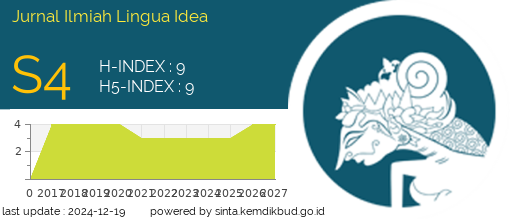


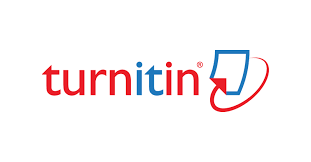














.png)
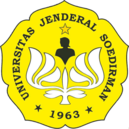

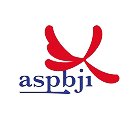
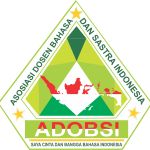
_.png)


